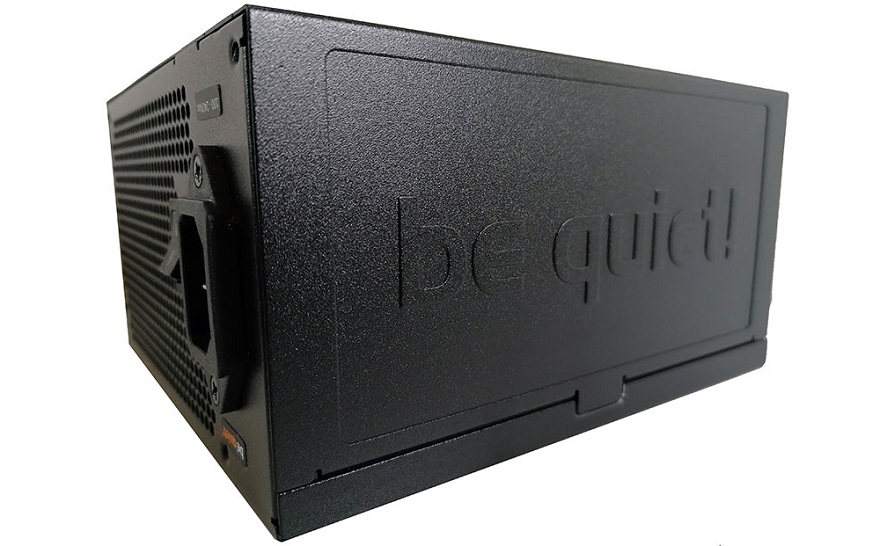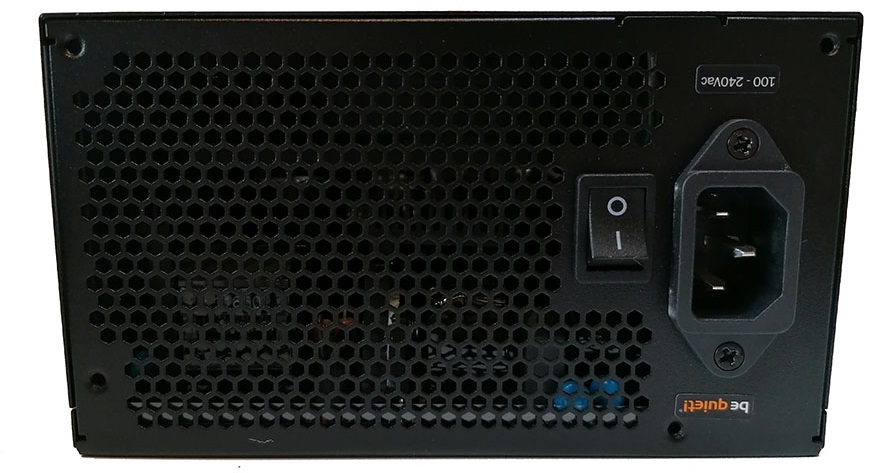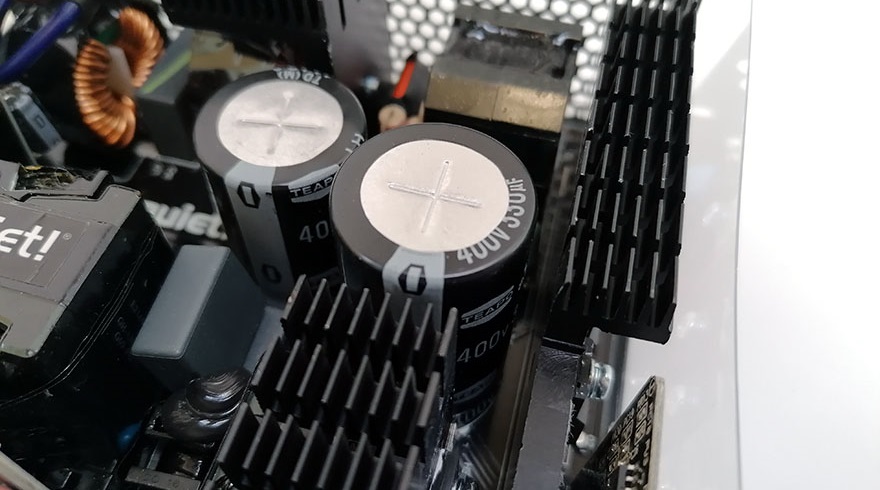be quiet! Pure Power 11 FM (650W) Power Supply Review
Mike Sanders / 4 years ago
A Closer Look
Out of the box the be quiet! Pure Power 11 presents itself well with a nice sleek black aesthetic. While some may criticise this for being a little bland, more than a few tricks have been added for that extra bit of visual appeal.

While branding is light, you can see the be quiet! logo in places and, without a doubt, one of the best examples of this can be seen on the side with it standing slightly proud as part of the metal casing.

With the silver ring to the outer rim of the fan, this again adds a nice visual touch to the overall presentation. Additionally, with a nice central location to the PSU, this should, all going well, provide a nice air movement source for the internal components.

The cable input bank is exceptionally well arranged, with each component having its own section, which is also labelled to denote its usage. It’s practically fool proof, and with a decent amount of spacing between them, both removal and insertion should be as easy as it gets!

While be quiet! hasn’t quite utilized all of the space available to the rear exhaust vent area, the section is still nice and large and arranged in a pretty pleasing hexagonal/honeycomb pattern. As you may note in the image below though, this does not have a hybrid fan function. Fret ye not though, this is a be quiet! product and, as such, we’re certain that the airflow is more than sufficient without giving any impact on the presumable surpremely low acoustic performance.

Cabling
Starting off with a little grumble, while the cabling provided with the be quiet! Pure Power 11 FM is certainly nice (and decent enough in terms of length) you are not given anywhere to keep it beyond an unsealable plastic bag inside the main packaging. It’s a small complaint, but I always prefer when manufacturers provide you with a canvas bag so you can always safely and easily keep the cables you don’t need right now for another day/build.
With each one itemized to denote its usage, however, overall the cabling looks good both in terms of functionality and quality.

Internals – A Look Inside!
Taking a look inside the be quiet! Pure Power 11 FM, we initially find the presentation to be excellent. There are no unsightly cables and everything looks to be well placed and organized.

Taking a closer look at the fan, while be quiet! have said that a ‘low noise optimized’ design has been used, without any specific product branding, it’s hard to know for certain if they’ve used one of their higher quality designs (such as the Silent Wings 2) or whether they’ve opted for a less premium alternative. Admittedly, power supplies don’t exactly need a high-specification cooling fan, but it will be interesting to see how fast and/or noisy this seemingly ‘off market’ variant performs.

A look at the PCB finds all of the main components and capacitors well spaced which should allow for excellent levels of airflow. While there is a hint of ‘ketchup and mustard’ around the main power input area, overall it looks excellent.

Unlike many premium power supply designs these days, the be quiet! Pure Power 11 FM does not come with main Japanese capacitors. Instead, they are from ‘Teapo’ who, as I understand it, is a Chinese company (well, technically Taiwanese, but that’s a political point of view I’m not going to touch with a barge pole here). So, has be quiet! gone cheap with this critical component? Well, yes and no. While Japanese capacitors will always carry the more preferable and higher reputation (and by proxy a higher price tag), Teapo is widely used in many PSU designs and, generally speaking, is considered at least ‘average’ in terms of their durability and performance. So, not great, but it could 100% definitely be worse!

Overall Thoughts!
So, both internally and externally the be quite! Pure Power 11 FM does look to be a very decent power supply. As noted above in this review, however, there are two main areas of concern. These being the less than optimal choice of main capacitors and the fan which doesn’t appear to be a main be quiet! premium-level product. Overall though, I suspect that these choices have largely been down to keeping the overall cost of this product to a reasonable consumer MSRP. Will this affect its performance though? Well, there’s only one way to find out. Let’s get this hooked up to our test bench!




















